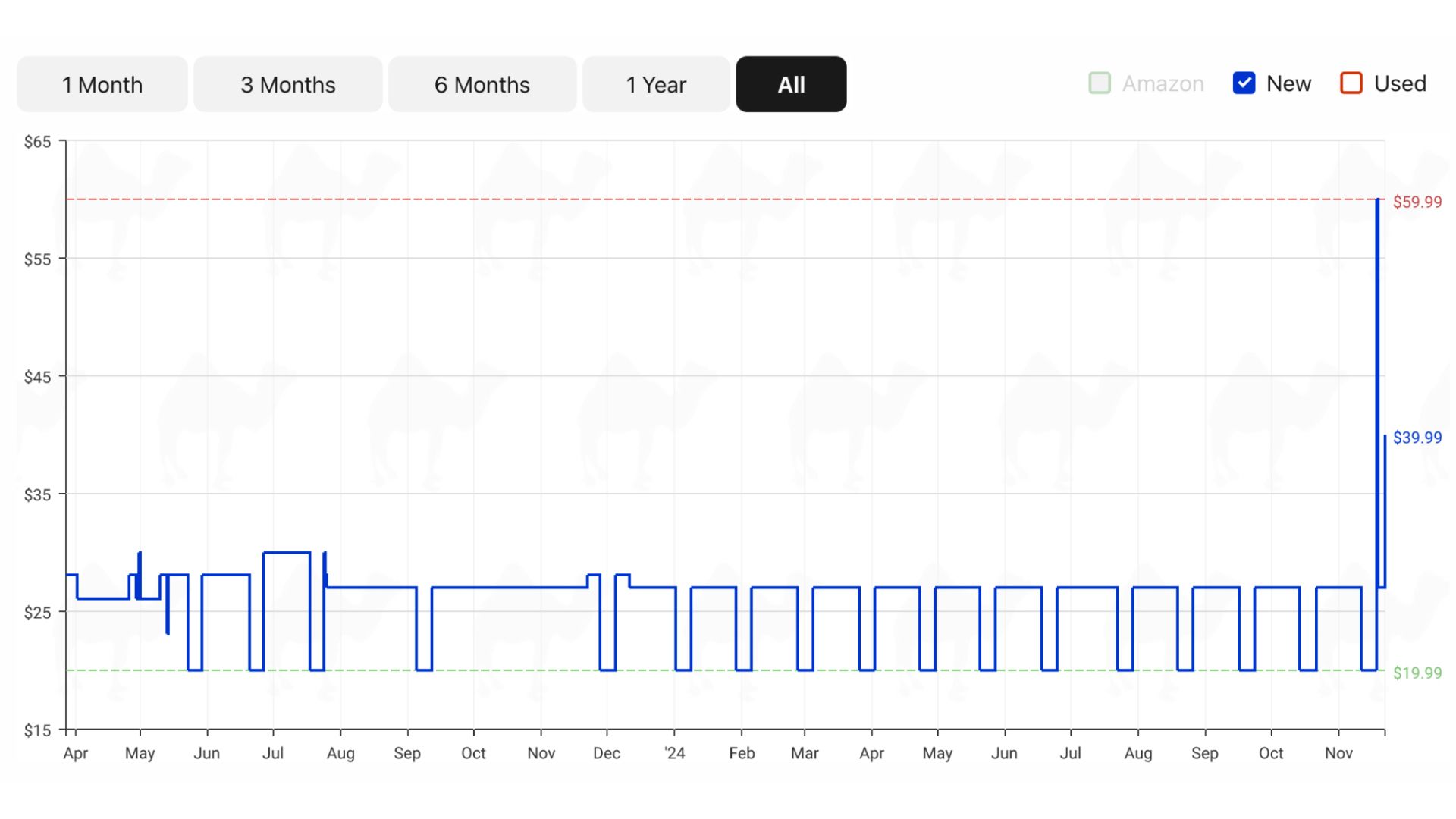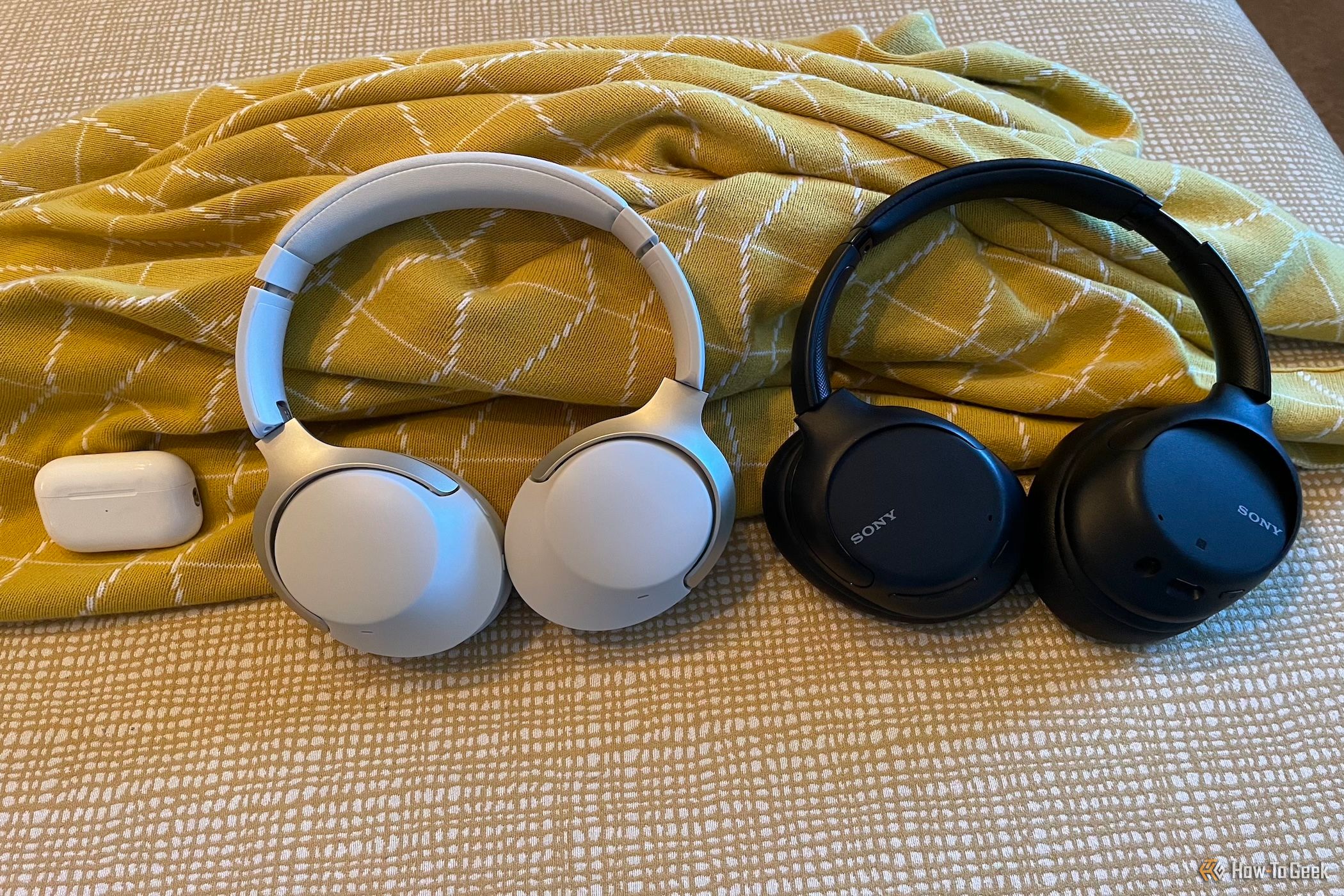It’s that time of the year again. Black Friday and Cyber Monday are just around the corner, so it’s time to stock up on flashy new tech gadgets. Before you fall for the hype and start splurging, consider whether some of the “discounts” are actually worth it.
Do Your Research Ahead of Time
You’ll have a limited amount of time to shop during Black Friday, so do your research now. For instance, if you’re shopping for a new graphics card, learn about the outgoing GPU models and what the best models are. Also, don’t ignore the brand. You might find a good deal on an AMD or Intel GPU that’s both cheaper and more powerful than the NVIDIA RTX 4060 that’s been sitting in your Amazon cart for six months.
Depending on what you’re buying, you might need to check if the item is compatible with your current tech setup. If it’s a smart home gadget, make sure it supports your home system. If it’s a pair of headphones, pay attention to impedance to make sure your current setup can drive the headphones at a high enough volume. And if it’s just a standalone product, check expert reviews before you get it to make sure you’re aware of all its features and shortcomings.
A common practice among retailers is to mark prices up ahead of Black Friday so that they can offer a steep discount. For instance, a $300 TV that’s regularly on sale gets a price bump to $500 and then a 50% discount to $250 to make it look like you’re getting a good deal.
It’s not just the shady sellers that do this; some major tech companies are guilty of this as well, with Amazon allegedly leading the charge. Some research points to 92% of all Black Friday sales being similar to or worse than sales during other times of the year.
Fortunately, free tools like CamelCamelCamel, Honey, and others allow you to check a product’s price history over time to confirm if the Black Friday deal is legit. I’d only consider the sale legit if the price is close to the product’s all-time low. Also, don’t ignore price-matching policies. Some retailers will give you a special discount if you find the product cheaper elsewhere, helping you save time and money on shipping.
Make a Wish List and Set Up Alerts
One of the most common mistakes people make during Black Friday is diving in headfirst without any idea of what to buy. Doorbuster deals are great to capitalize on, but if it’s something you don’t need, it’s still a complete waste of money. That $30 gaming mouse is never going to be as good as the $100 model you bought a couple of years ago, so why buy it in the first place?
Make it your objective to stay organized while shopping by creating a wish list ahead of time and sticking to it. That’s the only way to make sure you’re only buying what you actually want and need instead of random stuff. Additionally, you should set up price tracking notifications in Google Chrome. That way, you’ll be notified immediately when the price drops and you won’t miss out on a good deal.
Don’t Fall for Hype or FOMO
Retailers bank on your FOMO (fear of missing out) by offering “limited-time offers” and flash sales during Black Friday. Other times, they claim that there are only a few pieces left in stock. While these claims may or may not be true, they all have one goal in common—to exaggerate the value and scarcity of the product in order to push customers to buy immediately.
Don’t give in to this pressure. Unless it’s an extremely cheap item, avoid impulse purchases and be mindful of retailers’ tactics. If it isn’t something you would buy at full price or during a regular sale, don’t feel compelled to buy it now. Remember, sales come and go, so it’s not the end of the world if you miss one. Additionally, Cyber Monday is just around the corner. Still, the best way to save money on tech is usually to buy used, anyway.
Be Cautious With Lesser-Known Brands
Retailers often use Black Friday to get rid of dead stock, products that nobody wants. More often than not, this segment contains generic products from lesser-known, sometimes unpronounceable brands that you’ll see online. While it’s true that some of these brands actually sell decent products, some of them are low-quality garbage that you should avoid, regardless of price.
Brands matter because they serve as a shorthand for trust. Customers come to expect a baseline of quality from established brands. For instance, headphones from reputable brands like Sennheiser, Audio-Technica, Sony, and Beyerdynamic will consistently deliver high-quality sound, decent build quality, and good after-sales support.
Shop at Trusted Retailers
The only thing more dangerous than unknown brands during Black Friday is unknown websites with deals that seems too good to be true. This period is a breeding ground for scammers, so be wary of where you do your shopping. Be wary of Black Friday ads on social media and keep your shopping restricted to reputable online retailers like Amazon, Walmart, Best Buy, and other official online stores.
Stick to Your Budget
Tech goodies are exciting, but they’re also expensive. It’s easy to go overboard during Black Friday sales, so set a limit on your budget with a little wiggle room ahead of time. Don’t put yourself in a situation where you’ll have no money left until the next paycheck. If a product makes you go over your budget, remove it or something else from your cart before placing your order or checking out. No matter how good a deal seems, if it strains your finances, it’s not worth it.
While Black Friday is an exciting time to purchase tech, it’s important to keep your shopping impulses in check. Now that you’re armed with the knowledge of how to shop intelligently, you can confidently go through the sales without losing sight and falling for tricks. Remember, a well-informed decision always leads to the best purchase!








